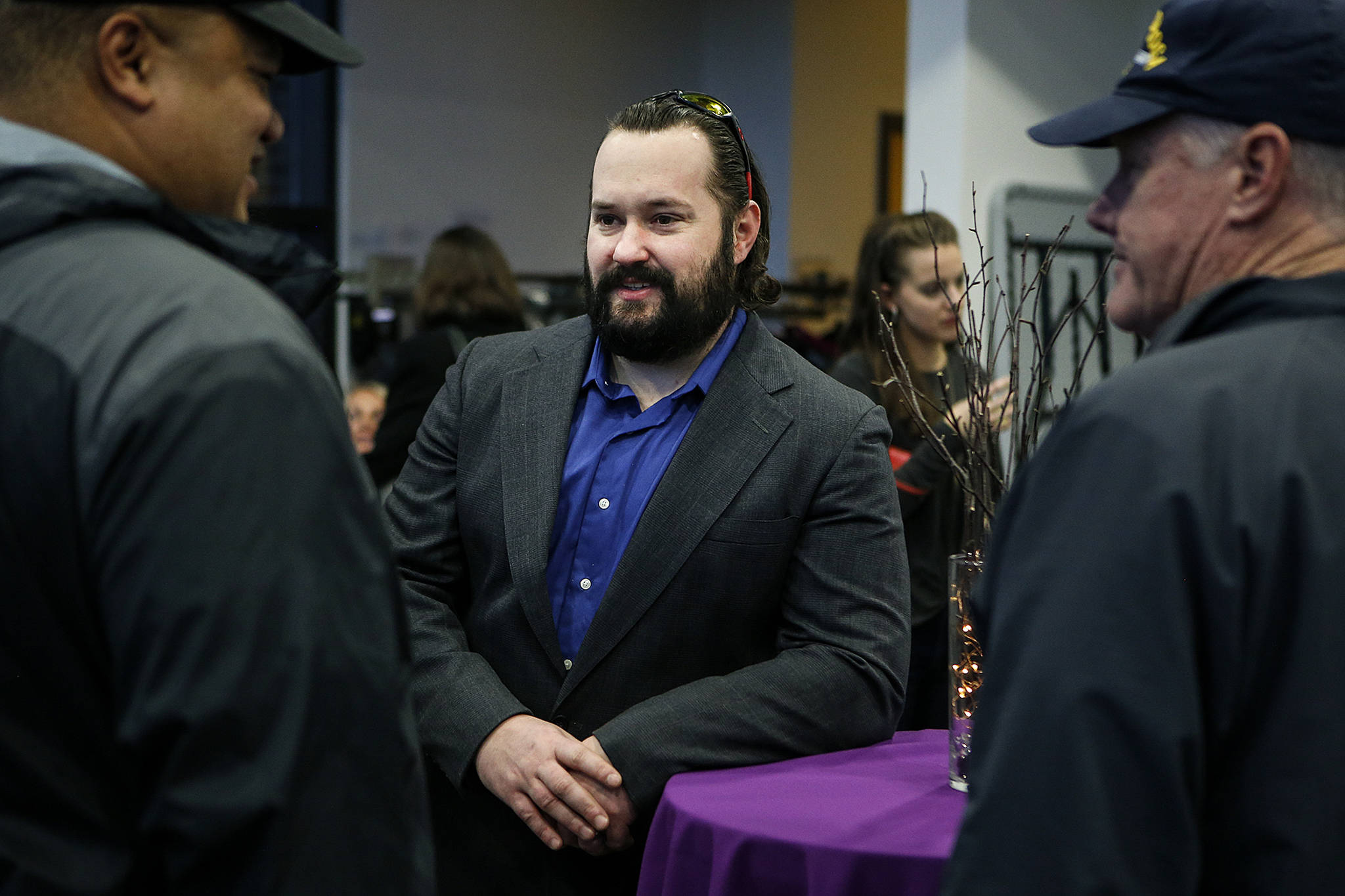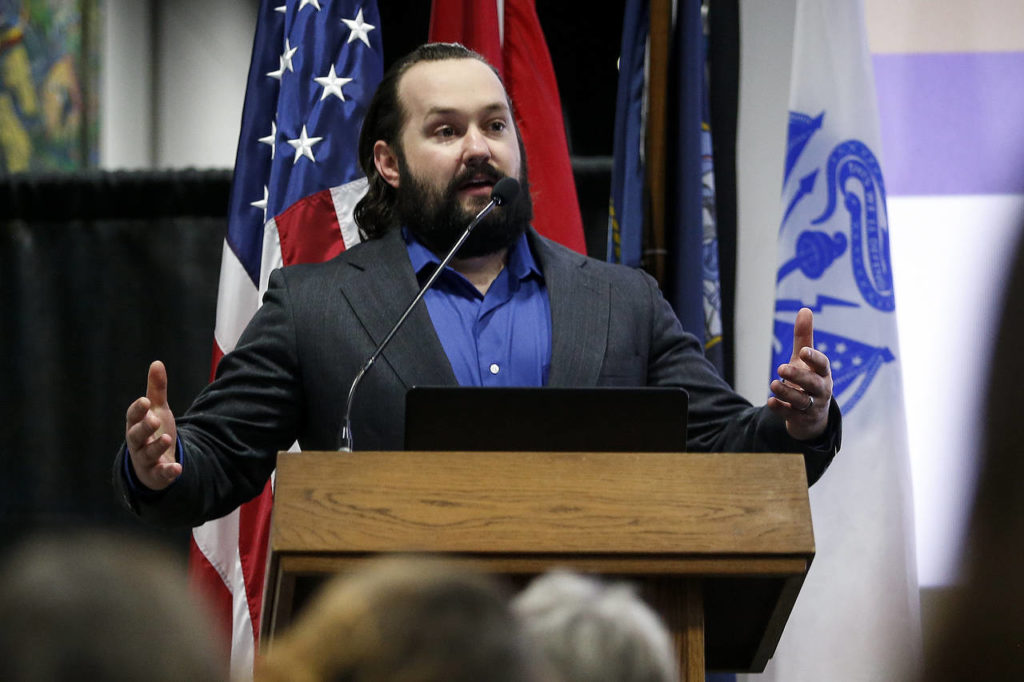BOTHELL — It was a simple act.
Take a tiny U.S. flag and plant it in the courtyard grass.
All the while, think about a veteran, likely someone close — a mom, a dad, a spouse, a sibling, an aunt, an uncle, perhaps a friend from high school.
The act was repeated many times earlier this week at the University of Washington Bothell where specks of red, white and blue dappled the lawn along a well-travelled campus walkway.
And that makes Calvin Evans smile.
The Marysville man is president of the UW Bothell Student Veterans Association. He’s one of 230 veterans enrolled at UW Bothell.
He and a couple of other vets greeted passersby, asking them if they’d like to take part.
By his estimate, 70 percent gladly did so and hundreds of flags were poked into the turf.
He figures those who walked past were worried they’d get some kind of sales pitch.
“The biggest challenge was getting people to take their headphones off,” Evans said. “We live in a connected world, but we are not connected to each other. We are connected to devices.”
So for those few hours on the Monday before Veterans Day, there were old-fashioned connections made from face-to-face conversations, strangers sharing stories about loved ones who served in the military.
It all felt good to the veteran who grew up in Granite Falls, spent 16 years in the U.S. Army and served two tours of duty in Afghanistan.
Veterans Day is not about presidents or political parties, he said. It’s been around in one form or another for nearly a century. It originated as Armistice Day on Nov. 11, 1919, the first anniversary of the end of World War I. Congress passed a resolution in 1926 for an annual observance, and Nov. 11 became a national holiday beginning in 1938. Armistice Day was changed to Veterans Day in 1954 to honor all military veterans.
“It is not a gift-giving holiday, a shopping holiday or media making a big deal about it, but it is important,” Evans said. “It’s about people who could have done something else with their lives. This is about recognizing that they have put themselves out there to defend and protect others.”
Evans graduated from Granite Falls High School in 1999. He was one of three children — his father, a Boeing worker; his mother, a homemaker. He didn’t want to burden his parents with college costs when he could pursue an education through the military. He enlisted with a classmate under a buddy system with plans of training and serving together, but their interests soon diverged and so did their assignments.
Evans initially served in the airborne infantry. He later became a medic in the reserves while working at Boeing. He returned to active duty as part of a troop surge in Afghanistan in 2008. Along the way, he became an intelligence analyst and staff sergeant.
A conversation with one of his troops sent Evans in a direction he’d never imagined.
The soldier said he was thinking about taking a language proficiency exam but was a little nervous about it. Evans told him he would take it with him. He didn’t think he’d do well, but his scores suggested otherwise.
Evans would spend more than a year and a half learning Arabic at the Defense Language Institute in California, even spending a quarter in Morocco. He became a cryptologic linguist, combing through documents in Arabic and reporting his findings.
Today, he is 37, married and has two children. He hopes to earn his bachelor’s degree in computer science after fall quarter 2018.
He knows some veterans struggle on their return. That was not his experience.
Despite a rigorous and competitive major, he quickly adapted to college life. The material might be challenging and complex, but the pace of learning expected of him in the military prepared him well, he said.
His prerequisites at UW Bothell included two quarters of calculus, which was much more difficult than the math courses he took while earning an associate degree in business years earlier.
Although he is among the older students on campus, Evans feels that he belongs.
“I have a lot of respect for what these millennials are all about,” he said.
At the same time, he figures he and other veterans have life experiences that are worth sharing.
Eric Stevick: 425-339-3446; stevick@heraldnet.com.
Talk to us
> Give us your news tips.
> Send us a letter to the editor.
> More Herald contact information.


























